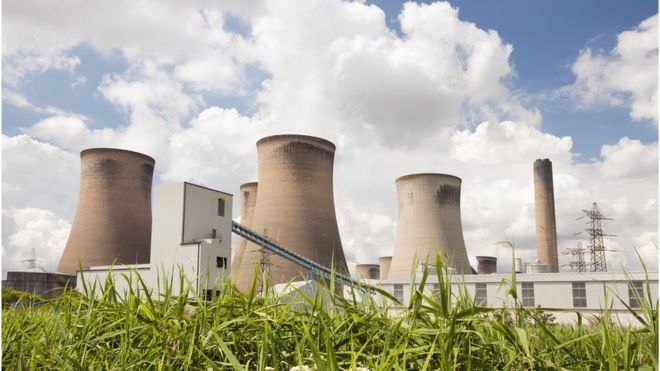Nuclear power will account for 10% of the world's total power generation in 2018.
According to Bloomberg, in 2018, the global power industry generated more than 26,000TWh of electricity, of which nuclear power accounted for 10%, fossil fuels for 63%, coal was the largest source, accounting for 37%, and natural gas was the second largest source, accounting for 23%.

Generally speaking, renewable energy accounts for 26%, but its biggest contributor is hydropower, accounting for 16% of the total. Wind and solar energy accounted for 4.8% and 2.2% respectively.
Bloomberg said that providing 7% of global electricity is an extraordinary achievement of wind and solar energy. From the beginning of the turn of the century, the two have overcome the huge initial cost disadvantage and pushed forward the thorough reform of technical standards and market structure. However, with 20 years of extraordinary growth and 3 trillion US dollars of investment, wind and solar energy still generate only 7% of the world's electricity, meeting only 3% of its final energy demand.
Last year, the Isar-2 nuclear power plant in Bavaria produced 11.5TWh of electricity. It was built in 1988 and is the second most efficient nuclear power plant in the world. In contrast, all 6,100 wind turbines in Denmark produce only 13.9TWh. Yes, a well-functioning German nuclear power plant will generate 83% of all Danish wind turbines with zero carbon in 2018. If the service life of Isar-2 can be safely extended to 60 years, it will continue to produce large quantities of zero carbon power until 2048. But no, it will be closed in 2022 as part of the energy transformation.
In 2018, renewable energy provided an impressive 36% of electricity to German consumers. However, it also contributes 34% of Britain's strength. Although Britain keeps its nuclear power capacity while increasing renewable resources, and its carbon dioxide intensity is reduced by more than half to 222 gCO2/kWh, Germany has chosen to shut down its nuclear power plant, making its carbon dioxide emission intensity more than double, 490 gCO2/kWh. If Germany shut down its coal-fired power plant, its power system may now have only 300 gCO2/kWh. France's electric power system, which is 72% nuclear-power dependent, emits less than 100 gCO2/kWh.
However, decommissioning of nuclear reactors also poses great risks. The 452 existing nuclear power plants in the world represent a huge retirement responsibility. The British government estimates that it will spend 234 billion pounds on decommissioning old nuclear power plants and cleaning up 17 sites over the next 120 years. Germany has provided 38 billion euros for the decommissioning of 17 reactors, or 2.2 billion euros per reactor. However, France estimates that its decommissioning costs have been reduced by an order of magnitude, to 300 million euros per GW. EDF only provided 23 billion euros to decommission its existing 58 reactors.
Source: Cable Network

- E-mail: cttcable@gmail.com
- 130 Jinsong 3rd Road, Lishonglang Community, Gongming Street, Guangming District, Shenzhen



